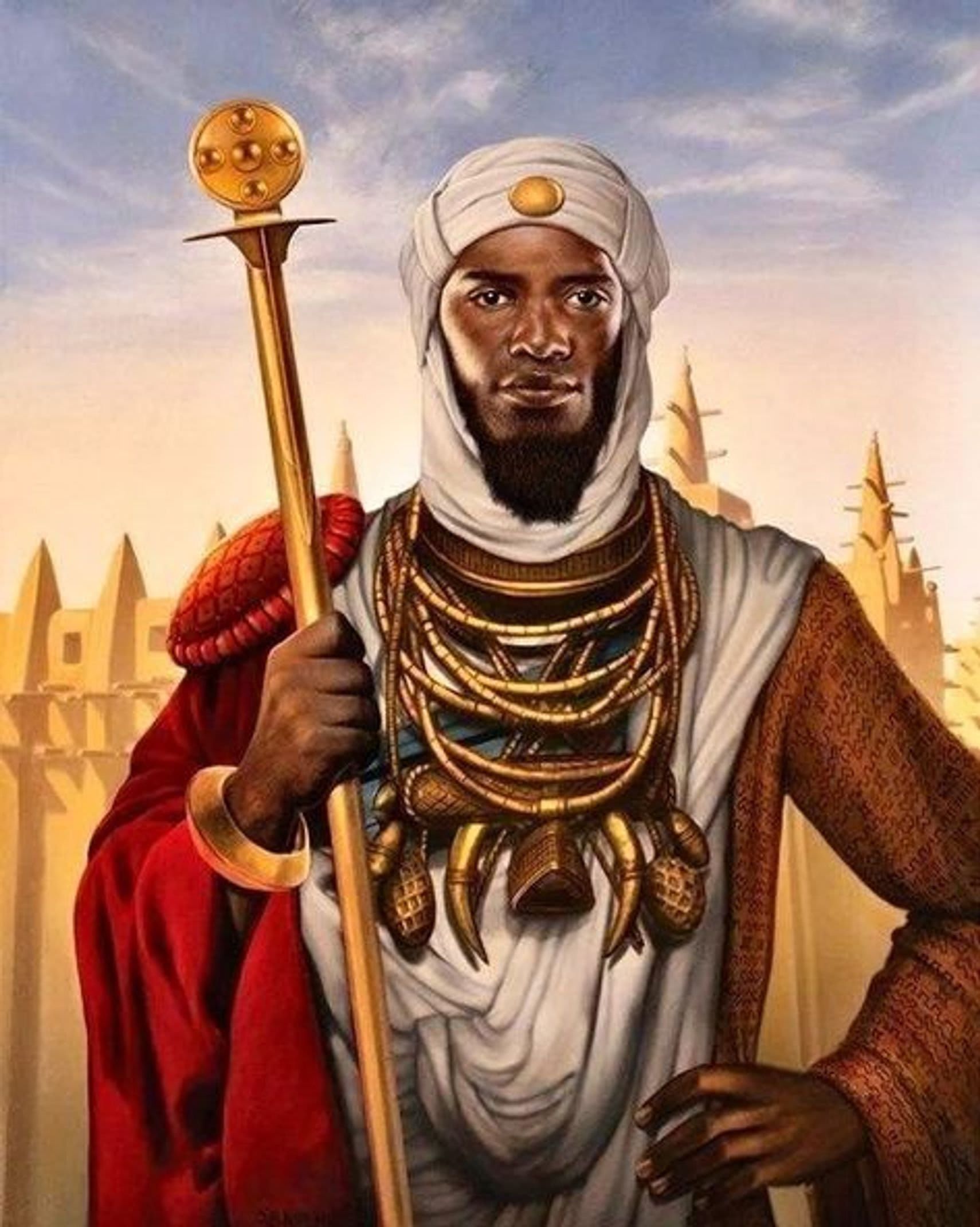Africa’s golden emperor: How Mansa Musa became the richest man in history | Nsemkeka
In the age of tech billionaires like Elon Musk and Jeff Bezos, history reminds us that the wealthiest individual of all time hailed not from Silicon Valley, but from 14th-century West Africa.
Mansa Musa, the emperor of the Mali Empire, remains unmatched in terms of wealth and influence not just in Africa, but globally.
The Mali Empire’s Rise
The Mali Empire, founded by Sundiata Keita in the early 13th century, became one of the most powerful civilisations in African history.
ALSO READ: Inside Africa’s hidden tribes: culture, myths, and forgotten histories
Stretching across parts of present-day Mali, Senegal, Guinea, Mauritania, and Niger, its prosperity was rooted in control of trans-Saharan trade routes and abundant resources like gold, salt, and ivory.
Timbuktu and Gao flourished as commercial and educational centres, attracting Islamic scholars and traders from across North Africa and the Middle East.
The empire thrived culturally and economically, with Islam playing a central role in its governance and scholarly development.
The Reign of Mansa Musa
Mansa Musa ascended to the throne in 1312 following the disappearance of his predecessor, Abu Bakr II, who sailed west to explore the Atlantic.
Musa inherited a wealthy kingdom, but under his rule (c. 1312–1337), the Mali Empire reached the height of its power.
He expanded Mali’s territories, established strong diplomatic ties, and transformed the empire into the wealthiest kingdom in Africa. Gold and salt trade made Musa unimaginably rich with some modern estimates placing his fortune at over $400 billion in today’s terms.
Yet Musa’s impact extended beyond economics. He championed Islamic learning, architecture, and diplomacy, helping to shape the identity and influence of West Africa.
The Legendary Pilgrimage to Mecca
Mansa Musa is best remembered for his 1324 pilgrimage to Mecca, a spiritual journey that became a defining moment in African history.
His entourage reportedly included 60,000 men, 12,000 slaves, and 80 camels, each carrying over 300 pounds of gold. His lavish generosity in Cairo, Medina, and Mecca stunned onlookers and caused a significant devaluation of gold in the region that lasted more than a decade.
Arab chroniclers, including al-Umari, were still recording stories of Musa’s grandeur years later.
His pilgrimage didn’t just affirm his piety but it also introduced Mali to the Islamic world as a sophisticated, wealthy, and well-governed empire.
A Patron of Culture and Learning
After returning from Mecca, Mansa Musa used his wealth and influence to transform Mali culturally.
He commissioned the construction of mosques, libraries, and schools most famously the Djinguereber Mosque in Timbuktu, designed by the Andalusian architect Abu Es Haq es Saheli.
Under his patronage, Timbuktu became a centre of Islamic scholarship. Institutions like Sankore University housed tens of thousands of manuscripts and attracted students from across the Islamic world, laying the groundwork for West Africa’s intellectual and religious tradition.
Legacy and Global Impact
Mansa Musa’s legacy is monumental. He brought global attention to Africa’s wealth, culture, and governance at a time when much of the world remained unaware of the continent’s complexity.
His reign shifted perceptions and put Mali on the map literally, as seen in the Catalan Atlas of 1375, where he is depicted holding a golden orb, symbolising his immense wealth.
ALSO READ: Made in Africa: 10 African brands that are changing the game
Though the Mali Empire declined after his death, Musa’s impact endures. He redefined Africa’s image for generations and stands as a powerful reminder that the continent was once and can be again a beacon of prosperity, learning, and leadership.
Conclusion
While exact estimates of Musa’s wealth are impossible some modern economists say he was worth over $400 billion in today’s terms making him the richest man to ever live. However, his true legacy lies in how he projected African greatness on the global stage.
In an age when African history is often overlooked or misrepresented, his story serves as a powerful testament to the continent’s enduring greatness.

